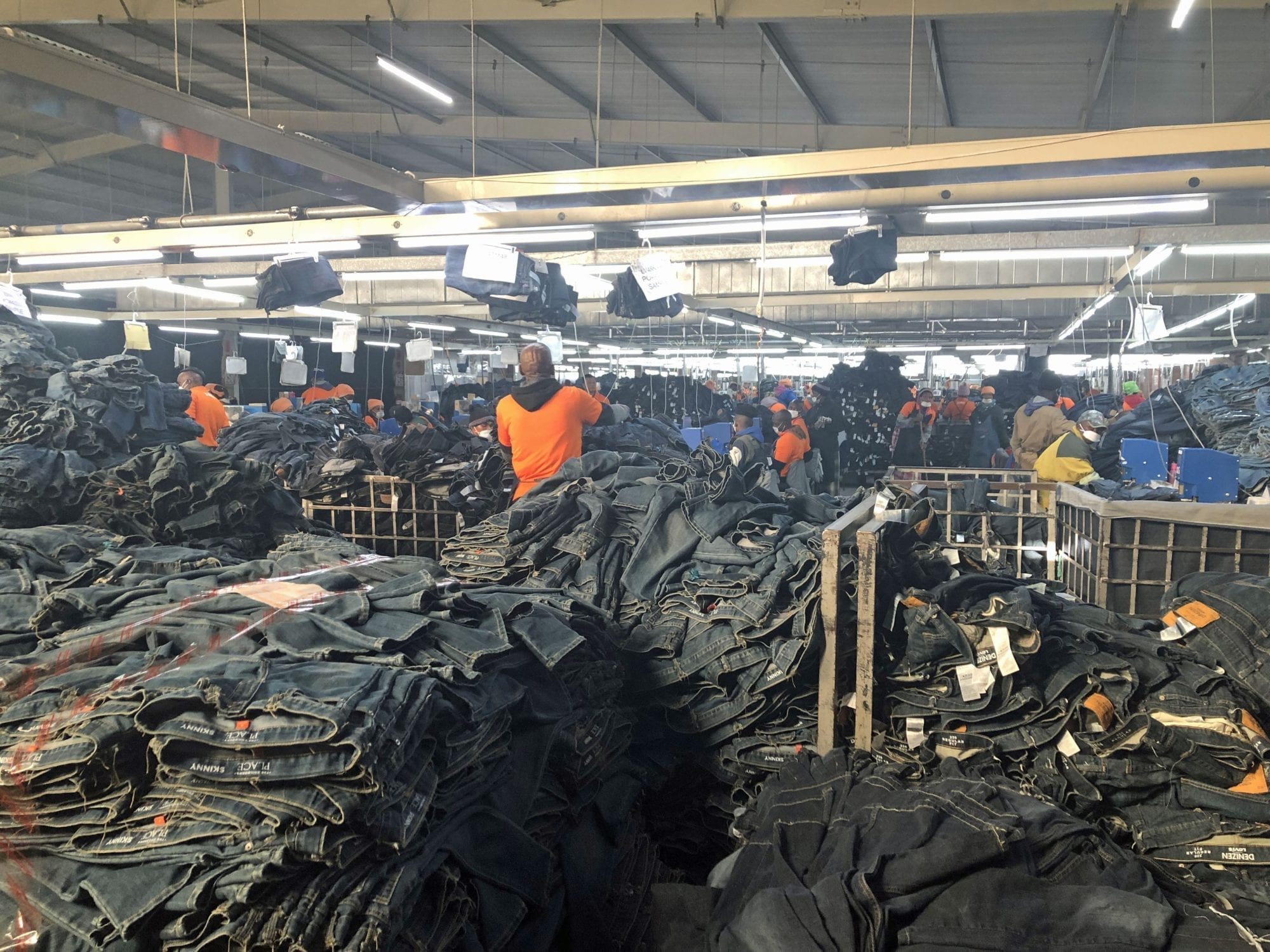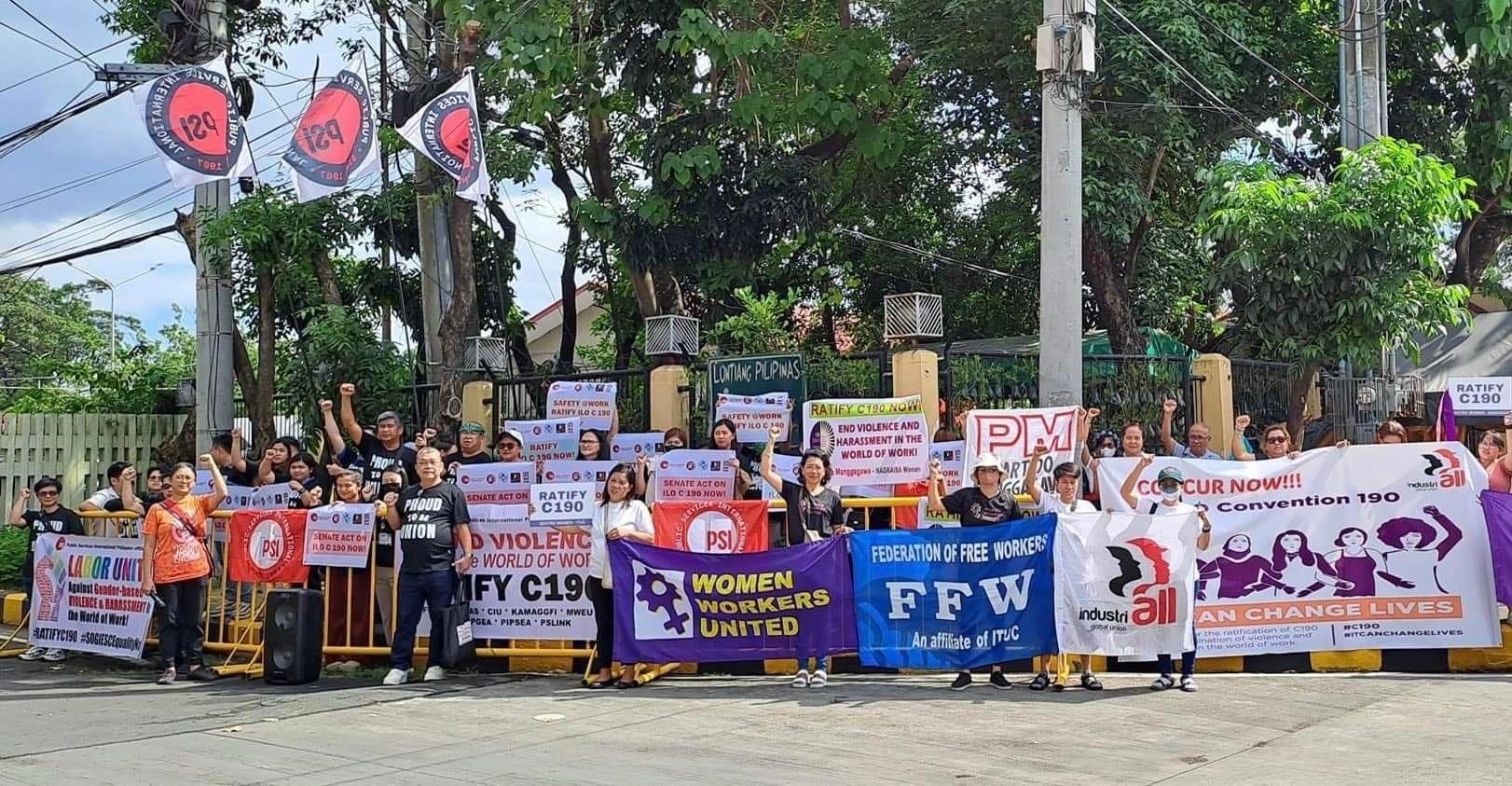Five years after its adoption by the International Labor Organization (ILO)—a specialized agency of the United Nations—the first global binding treaty to address gender-based violence and harassment (GBVH) in the world of work is yielding tangible results, addressing...
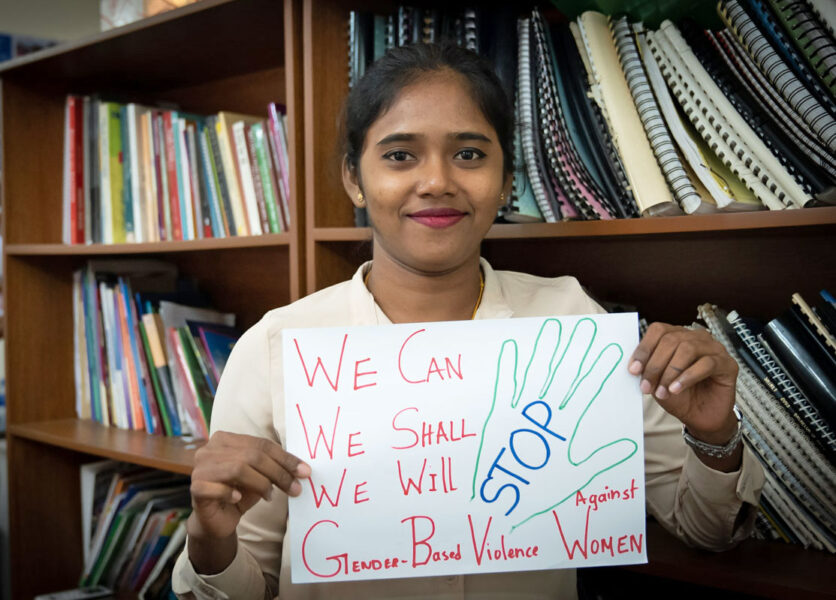
The Solidarity Center and worker rights organizations like the Lanka Eksath Jathika Workers Union in Sri Lanka advocated for a landmark global standard to eliminate gender-based violence and harassment at work and are pushing for its ratification by governments. Credit: Solidarity Center/Sean Stephen
The Solidarity Center prioritizes preventing and addressing gender-based violence and harassment in the world of work, recognizing it is a primary barrier to achieving gender equality and a key step for security of all workers’ rights. The Solidarity Center seeks to enhance the voice of women and other marginalized workers in policy making at the local, national, and international levels to reduce the risk of gender-based violence at work and build leadership, voice and direct participation of women and other marginalized workers and their unions.
Beginning in 2014, the Solidarity Center was a core member of a global coalition of worker rights organizations led by women union activists that successfully advocated for a landmark global standard (Convention 190) to eliminate violence and harassment in the world of work, including gender-based violence and harassment which was adopted by the International Labor Organization in June 2019. We support our partners as they campaign for their governments to ratify ILO Convention 190.
See related factsheets, videos and reports.
Nigeria: Amplifying the Silence and Fight Against GBVH in the Workplace
Gender-based violence and Harassment (GBVH) is a pervasive issue in Nigeria, affecting individuals across various sectors and walks of life. It encompasses a range of harmful behaviors directed at individuals based on their gender, including physical violence, sexual...
The Philippines Ratifies Treaty to Eliminate Violence, Harassment at Work
This week, the Philippines became the first Asian country to ratify the International Labor Organization (ILO) Convention No. 190, in a unanimous vote in the Philippine Senate. ILO C190, or the “Convention Concerning the Elimination of Violence and Harassment in the...
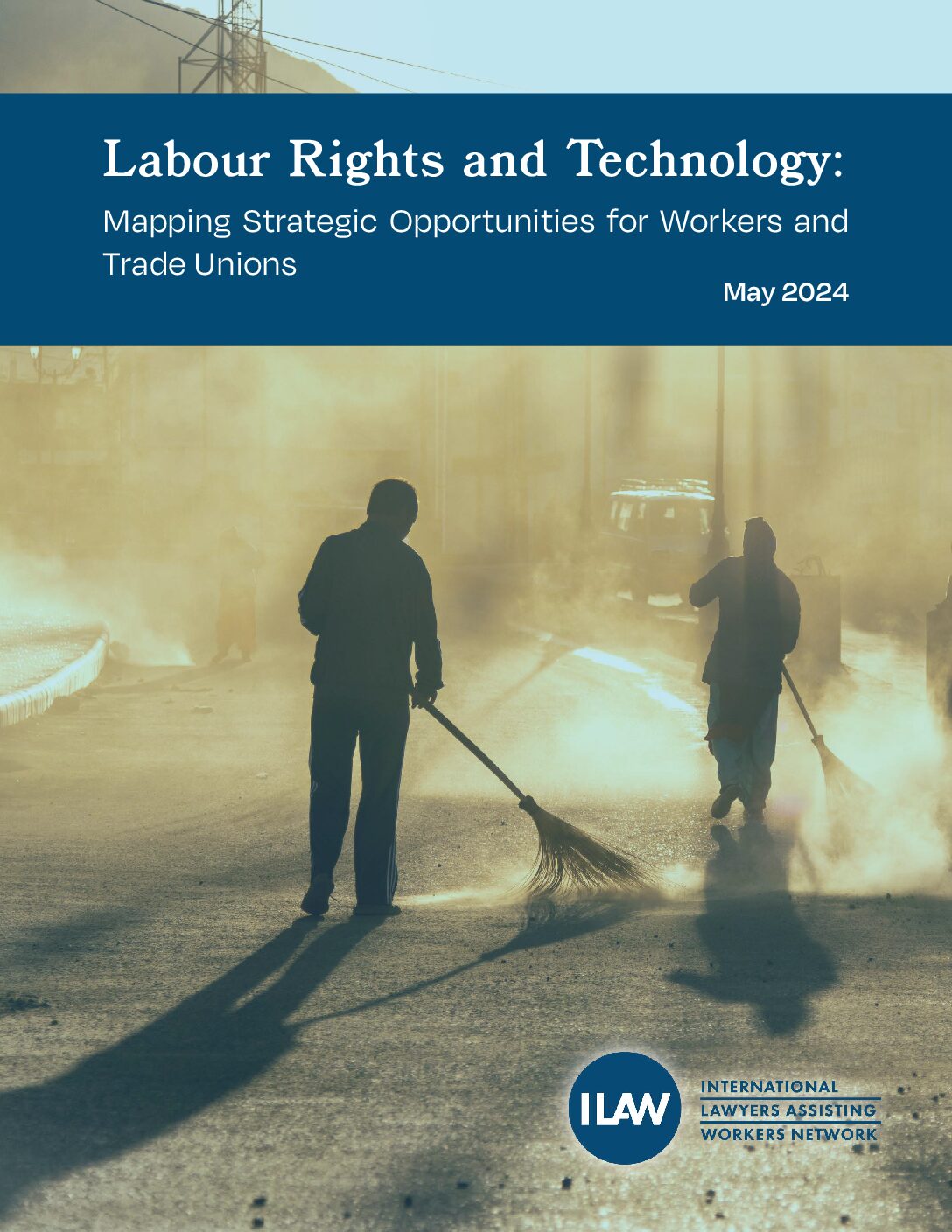
Labor Rights and Technology: Mapping Strategic Opportunities for Workers and Trade Unions
This ILAW Network issue brief, researched and drafted by Dr. Barbora Černušáková, maps some of the legal initiatives and strategies undertaken by workers and unions, and outlines opportunities for workers to challenge breaches of technology-driven labor rights through...
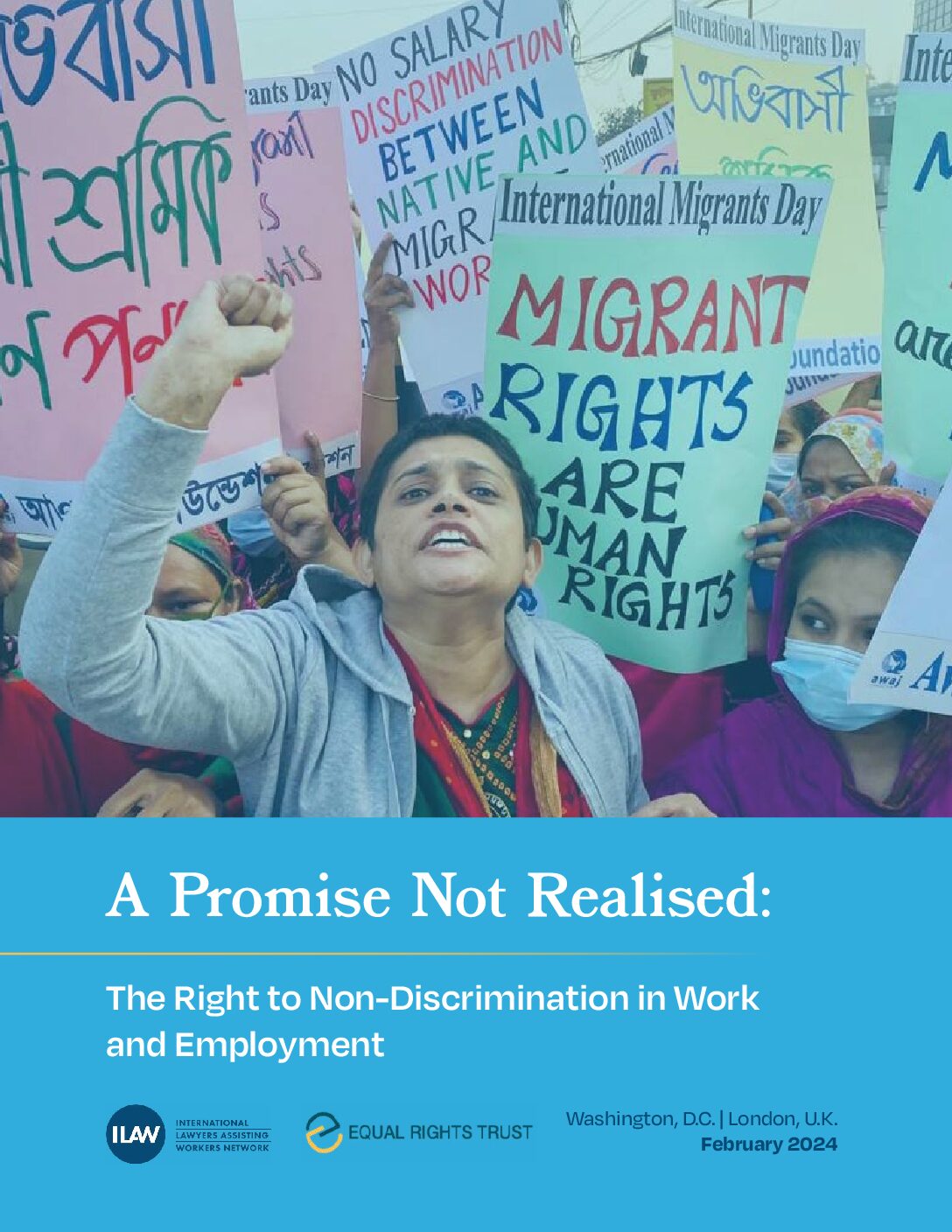
A Promise Not Realised: The Right to Non-Discrimination in Work and Employment
The ILAW Network is pleased to present our new report, A Promised Not Realised: The Right to Non-Discrimination in Work and Employment – a collaboration of the ILAW Network and Equal Rights Trust (ERT). This issue brief focuses on two main questions: (1) why does...
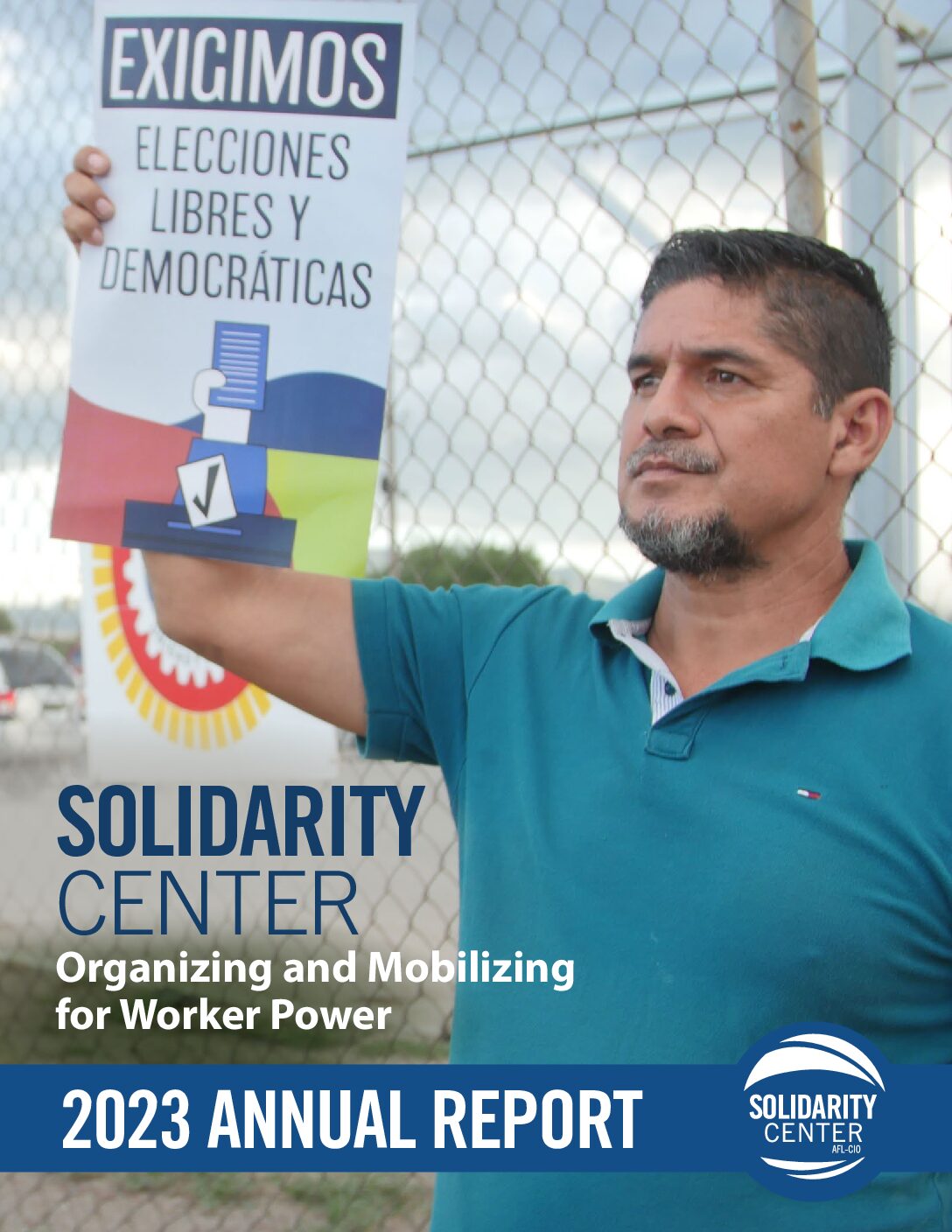
2023 Annual Report
In 2023, the Solidarity Center supported workers as they took on exploitative multinational companies and robot algorithms, demanded their governments tackle social ills and deliver on promises, and fought for justice in environments increasingly dangerous to those...

Widespread Exploitation in the EU Road Transport Industry: The Case of Central Asian Truck Drivers
The ILAW Network is pleased to present our new report, Widespread Exploitation in the EU Road Transport Industry: The Case of Central Asian Truck Drivers, written by Imke van Gardingen and Edwin Atema of Road Transport Due Diligence (RTDD). This research was supported...
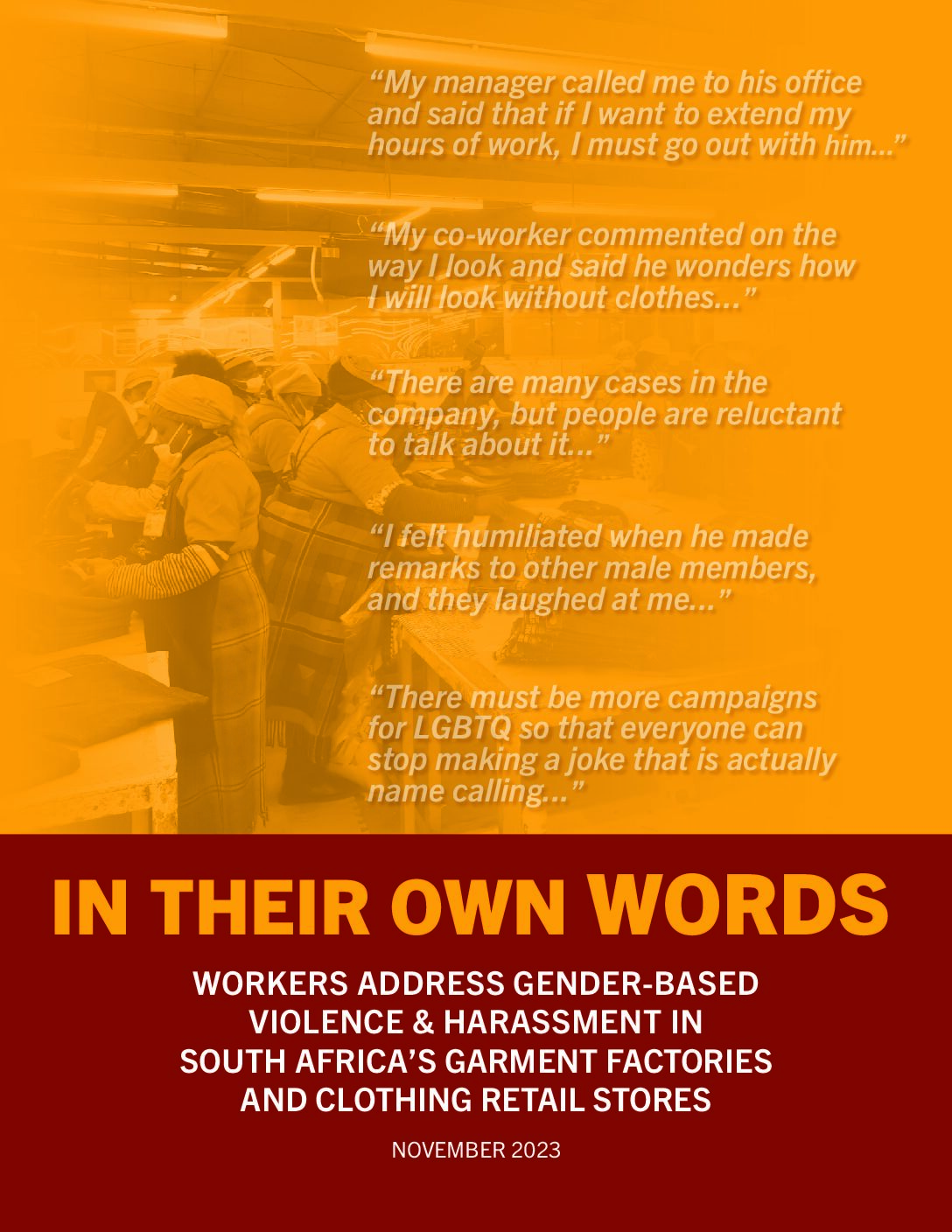
In Their Own Words: Workers Address Gender-Based Violence & Harassment in South Africa’s Garment Factories and Clothing Retail Stores
In South Africa, 98 percent of women garment and retail workers surveyed in 2022 said they had experienced one or more forms of gender-based violence or harassment, including physical abuse, unwanted sexual advances, psychological abuse, bullying and rape. To better...
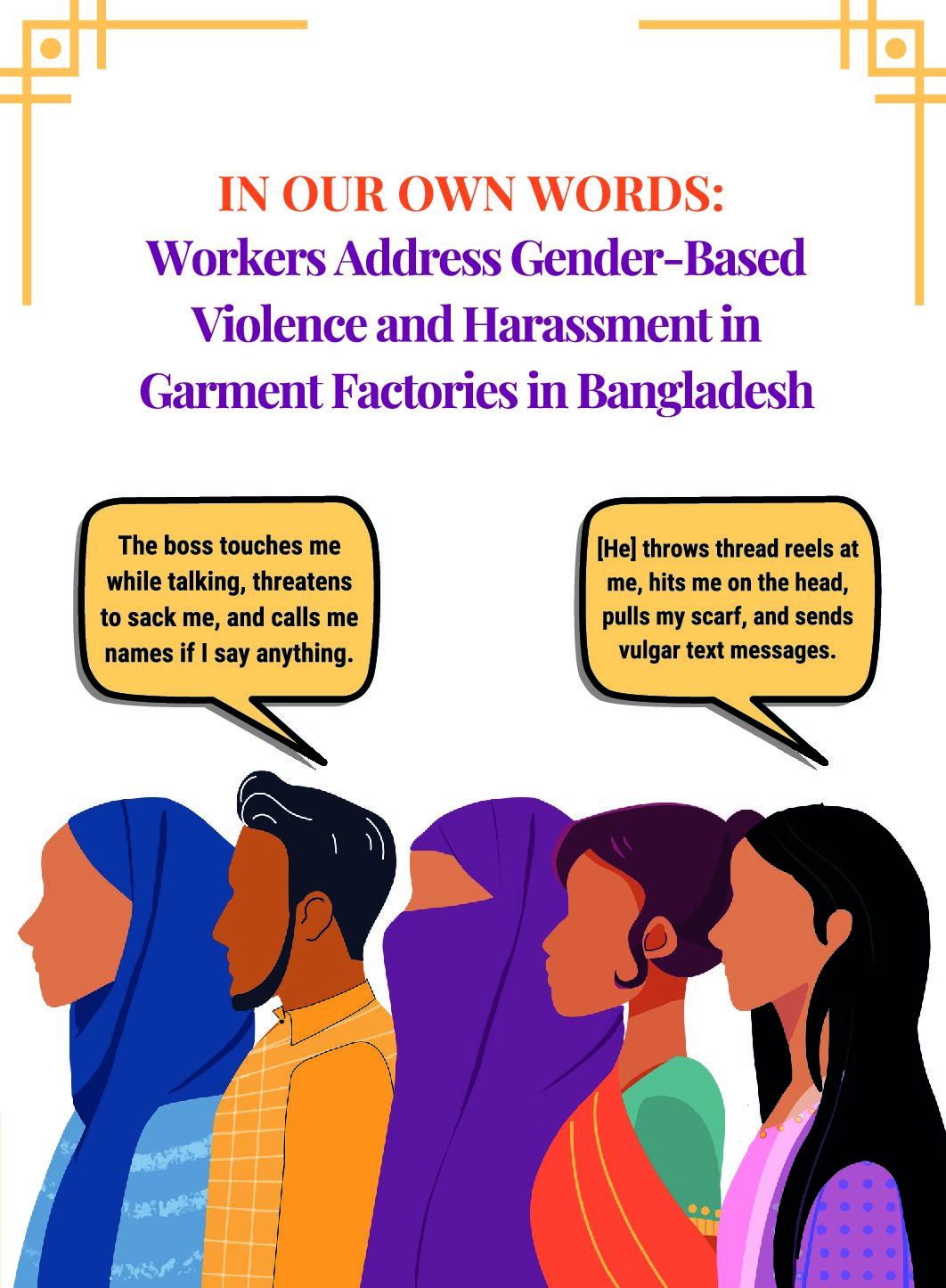
In Our Own Words: Workers Address Gender-Based Violence and Harassment in Garment Factories in Bangladesh
In Bangladesh, 80 percent of women garment workers surveyed in 2019 reported they had experienced or witnessed sexual harassment, molestation or assault, endured extreme verbal abuse or witnessed a factory manager or supervisor abuse and harass other women in the...

